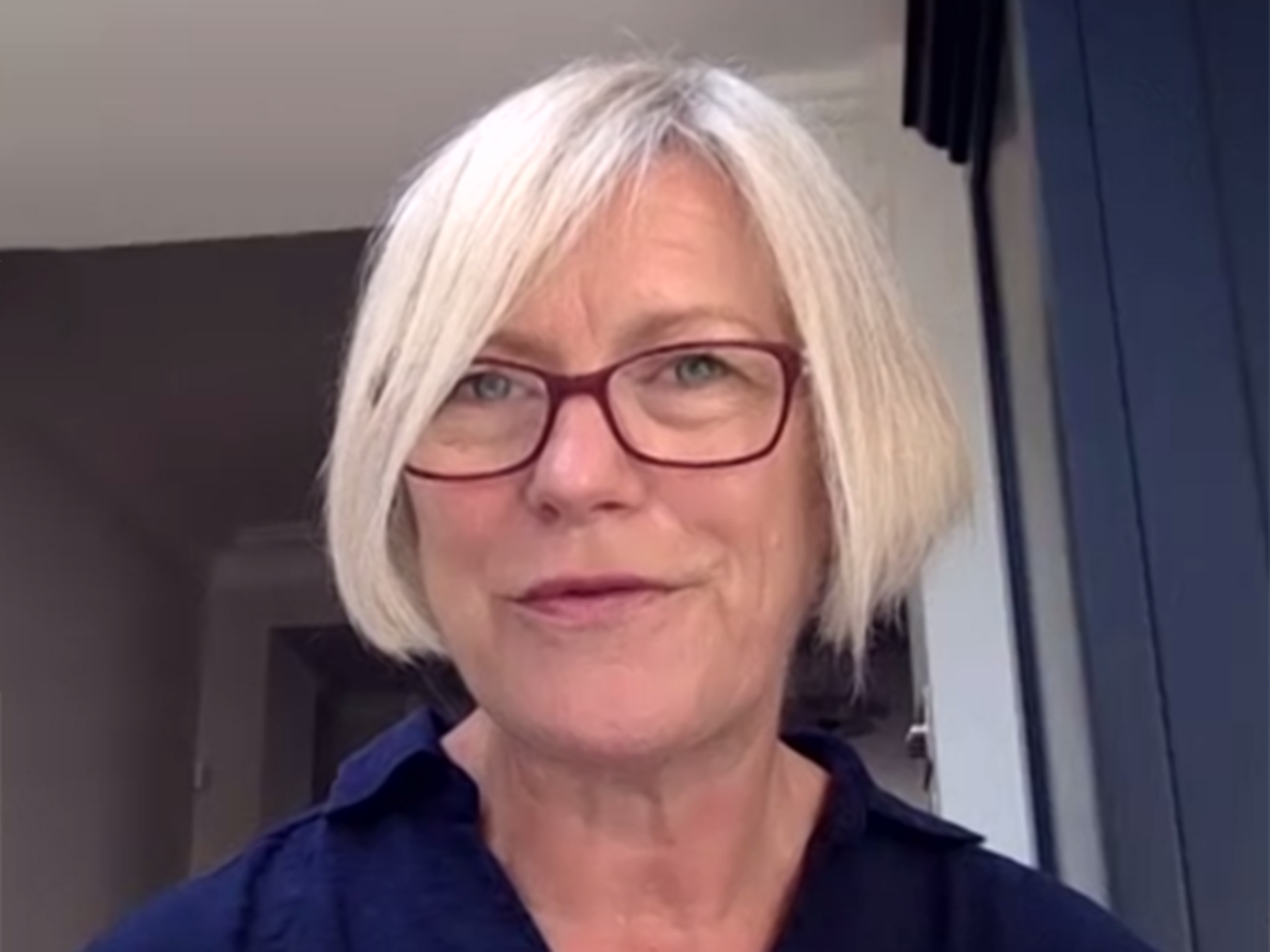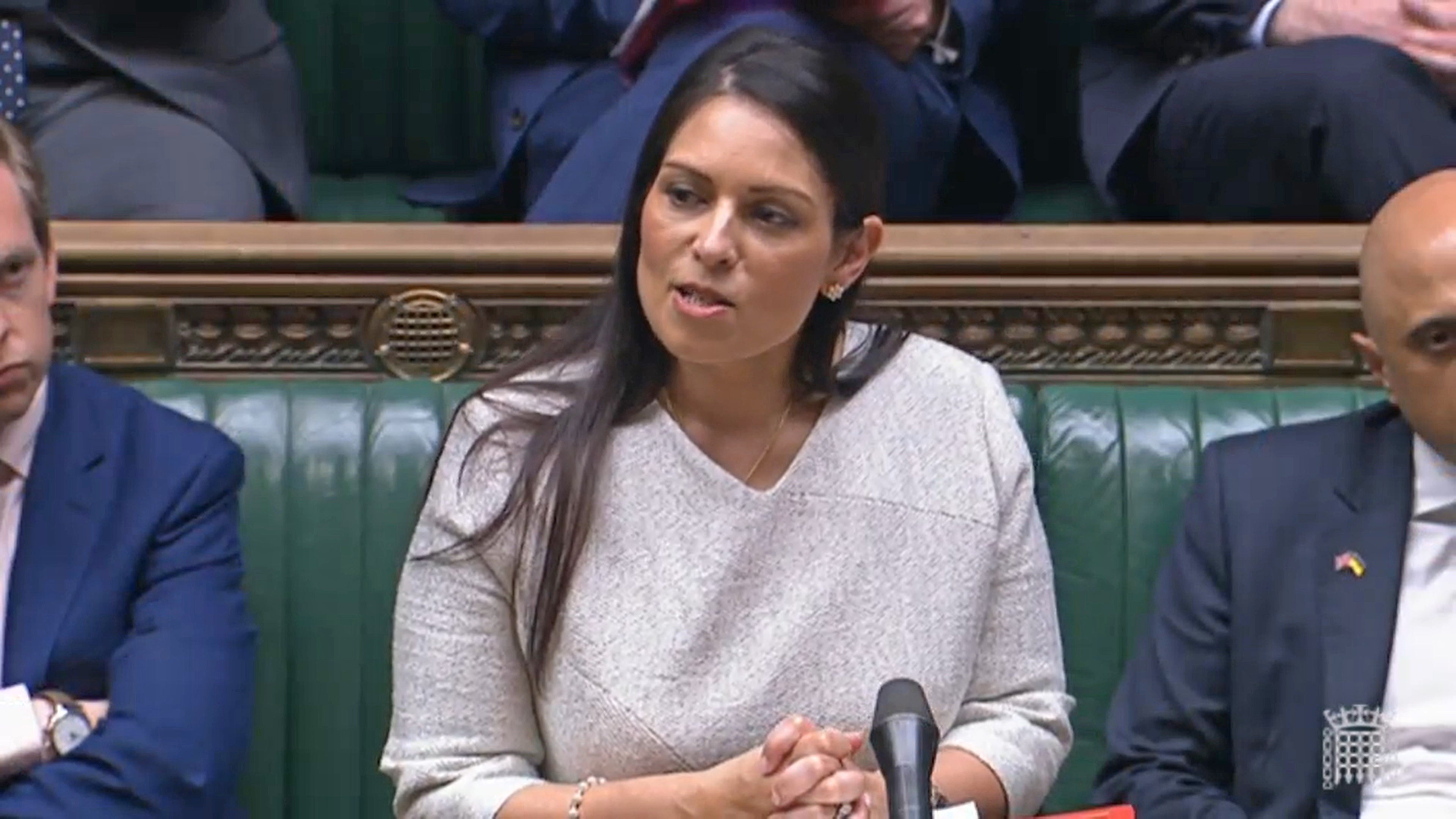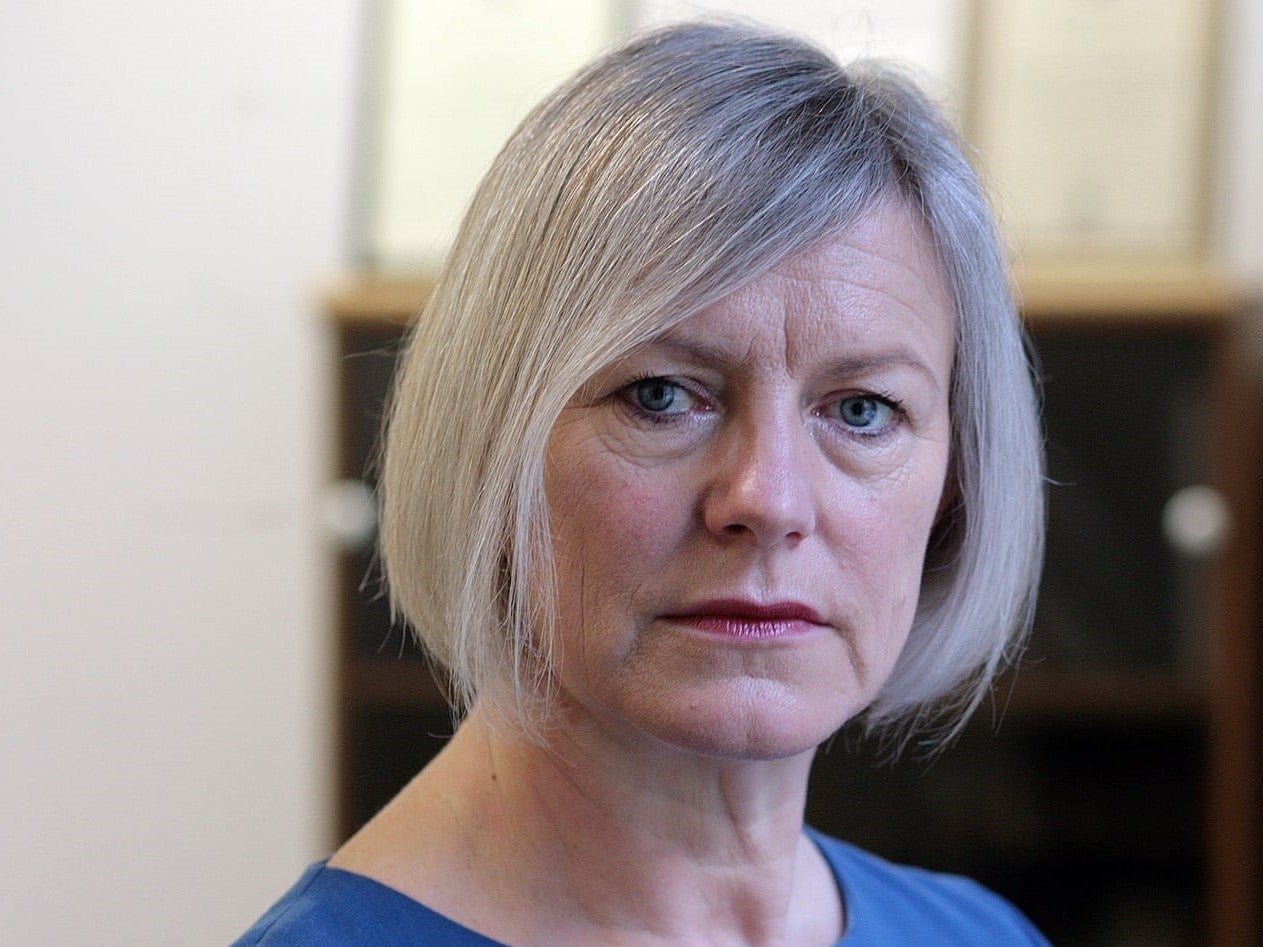Home Office ‘failed to heed my warnings on immigration bill’ says departing anti-slavery tsar
Exclusive: In her final interview as independent anti-slavery commissioner, Dame Sara Thornton tells The Independent the government’s asylum overhaul has been driven by ‘political calculation’ and the fight against modern slavery in Britain is ‘not what it was’ under Boris Johnson and Priti Patel

Your support helps us to tell the story
From reproductive rights to climate change to Big Tech, The Independent is on the ground when the story is developing. Whether it's investigating the financials of Elon Musk's pro-Trump PAC or producing our latest documentary, 'The A Word', which shines a light on the American women fighting for reproductive rights, we know how important it is to parse out the facts from the messaging.
At such a critical moment in US history, we need reporters on the ground. Your donation allows us to keep sending journalists to speak to both sides of the story.
The Independent is trusted by Americans across the entire political spectrum. And unlike many other quality news outlets, we choose not to lock Americans out of our reporting and analysis with paywalls. We believe quality journalism should be available to everyone, paid for by those who can afford it.
Your support makes all the difference.The UK’s anti-slavery tsar has said the Home Office failed to take her warnings into account when devising its immigration bill, and suggested that the measures are driven by “political calculation” rather than expertise.
Dame Sara Thornton, whose last day as independent anti-slavery commissioner was on Friday, told The Independent she has been frustrated at times during her tenure that Priti Patel and her team pushed ahead with plans without providing evidence they are likely to work.
She said the fight against modern slavery, which Theresa May made one of her main priorities while prime minister, was “certainly not the priority it was” under Boris Johnson and Ms Patel, and that this was being noticed at an international level.
The Nationality and Borders Bill, a series of legislative measures that the home secretary says will tackle “illegal immigration” and the “underlying pull factors into the UK’s asylum system”, concluded its passage through parliament this week and is now set to become law.

The legislation seeks to prevent asylum seekers who travel to the UK via unauthorised routes from being granted permanent protection in Britain. The government announced earlier this month that many of them will be shipped to Rwanda after a £120m deal was agreed under which their claims will be considered in the east African country.
The bill will also give modern slavery and trafficking victims less time to disclose the abuse they have suffered, and disqualify those who have been sentenced to prison for more than 12 months anywhere in the world from accessing modern slavery support in the UK.
Dame Sara, who has already expressed her concern about the bill publicly, said: “While politicians might listen, they don’t necessarily agree, or they make a political calculation. It hasn’t just been me.
“The expertise and experience of lots of people in the sector, including that of survivors, is not taken into account as much as I think it should be.”
She pointed out that the department had provided little evidence to back up its claim that asylum seekers were “taking advantage of modern slavery safeguards” in order to prevent their removal - which ministers cite as a reason to restrict the ability for people to present as victims of trafficking.
“This issue about people abusing the modern slavery arrangement has been a key argument – well let’s see how many have been referred,” she said.
“Why not put the information into the public domain so that we can have a proper debate about it? Wouldn’t it be much better for the debate to be informed by facts?”
Dame Sara said her biggest disappointment during her tenure had been the government’s failure to improve the National Referral Mechanism (NRM), the UK’s framework for identifying and supporting victims of modern slavery and trafficking.
“When I started in the role there was an objective to be much speedier and more assured in its decision-making, but we know the backlogs have just got longer and longer, with people waiting on average 568 days for a final decision last year,” she said. “This is a deteriorating performance in the context of promises to be so much better.”
She called on ministers to “think seriously” about moving the responsibility for decision-making for UK adults away from the Home Office and to local authorities instead – a model that has recently been piloted for children with success.
“My view is that we should roll it out to all areas for children as soon as we can, and we need to think seriously about how [decision-making for] UK adults, who are often very vulnerable and well-known to safeguarding partners, could be made locally by local partners,” she added.
The UK’s first ever independent anti-slavery commissioner, Kevin Hyland OBE, resigned in 2018 after four years in the position, citing government interference in his role and saying his independence “felt somewhat discretionary from the Home Office, rather than legally bestowed”.

“I hope that any future incumbent can be assured the independence I am sure you intended as the author of the legislation,” he wrote in a letter to the then prime minister Ms May.
Dame Sara said that unlike Mr Hyland, she felt there had not been interference in the role, adding that the situation may have improved in part due to the review of the Modern Slavery Act, published in 2019, which noted the importance of upholding the commissioner’s independence.
However, the commissioner raised alarm that Mr Johnson’s government has failed to promote the fight against modern slavery in the way previous leaders had, which she said was “saddening”.
The UK became recognised on the world stage for its focus on tackling the crime when Ms May, as home secretary, introduced the Modern Slavery Act in 2015, a series of laws designed to combat slavery in the UK.
“Theresa May gave outstanding leadership in this area and positioned us so well in the rest of the world. I think that when they say the Modern Slavery Act was world leading, that was true – seven years ago,” said Dame Sara.

“It’s certainly not the priority it was, and people notice that internationally. It saddens me that we’re not looked at in the way we were seven years ago as being at the forefront of this.
“This is about a serious form of abuse and the UK used to be at the forefront, saying this is unacceptable and we need to eradicate it, make sure we protect victims and prevent it from happening. We were leading in that, which I think is a really good and moral and ethical thing to do, and the fact that we’re doing less of that is a point of regret.”
It is not yet known who will replace Dame Sara in the role. A job advertisement for the position expired on 17 January but no announcement of her replacement has been made as of yet.
A Home Office spokesperson said: “The UK leads the way in tackling the injustice of modern slavery and we have identified and supported thousands of victims to rebuild their lives, while putting those responsible for these crimes behind bars.
“We are committed to ensuring victims receive the care and compassion they need through the National Referral Mechanism, which helps to identify potential victims and aid their recovery.
“The Nationality and Borders Act puts victims’ rights into law and we will set out a new government strategy to tackle this heinous crime later this year as well as continuing to engage stakeholders to ensure the effective implementation of these policies.”



Join our commenting forum
Join thought-provoking conversations, follow other Independent readers and see their replies
Comments